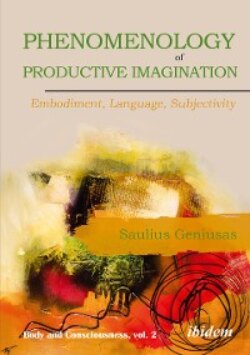Читать книгу Phenomenology of Productive Imagination: Embodiment, Language, Subjectivity - Saulius Geniusas - Страница 6
На сайте Литреса книга снята с продажи.
CHAPTER I
What is Productive Imagination? From Kant to Phenomenology Introduction
ОглавлениеAs embodied beings, whose existence is largely shaped socioculturally and linguistically, humans relate to the world not only perceptually and conceptually, but also imaginatively, both at the individual and at collective levels. Such has been the view defended by a wide variety of thinkers from Aristotle onwards. Throughout the history of western philosophy, imagination has been commonly addressed as something deeply human, as a feature of experience without which we would not be human at all. Philosophers have been continuously perplexed by the highly diverse ways in which imagination infiltrates our experience, taken in its highly diverse modes, both personal and social. Yet, as so often happens with seemingly self-evident and commonplace concepts, our conception of imagination appears to be familiar whenever we are not asking about it, but becomes utterly strange whenever we do. This elusiveness of imagination, coupled with the suspicion that it shapes the basic modes of our relation to the world, has often given rise to philosophical wonder. Kant expresses this with force in the Critique of Pure Reason, when he famously speaks of the mysterious nature of imagination, characterizing it as a “blind and indispensable function of the soul … of which we are scarcely ever conscious” (Kant 2007, A78/B103) and as “an art concealed in the depths of the human soul, whose real modes of activity nature is hardly likely ever to allow us to discover, and to have open to our gaze” (Kant 2007, A141/B180).
In particular, the concept of productive imagination – which seems to be a specifically modern invention even though it, arguably, finds its origin in antiquity – has played a central role in modern philosophy (see Geniusas and Nikulin 2018, Geniusas 2018 and Geniusas 2019). However, despite its importance in the philosophical discussions of the last few hundred years (especially in Kant, German idealism, romanticism, phenomenology and hermeneutics), only a handful of studies have been dedicated to its analysis. It is therefore, not surprising that the meaning of this concept remains largely underdetermined, while its significance is all-too-often either exaggerated or underestimated. In this introductory chapter, I will be guided by a three-part goal: (1) to provide a brief clarification of the Kantian conception of productive imagination, (2) to sketch the history of productive imagination from Kant to phenomenology and (3) to provide a guiding definition for the phenomenological conception of productive imagination. I should stress that this chapter is meant to serve introductory goals. In other words, the reason why I address Kantian and post-Kantian conceptions of productive imagination is for the sake of clarifying the historical precursors of phenomenology. The purpose of this introductory chapter is to demonstrate that phenomenological analyses of productive imagination do not emerge in a historical vacuum. Such phenomenological analysis has, instead, grown out of a long history of philosophical struggle and proposed solutions, and should, therefore, be understood from within this historical framework.1
